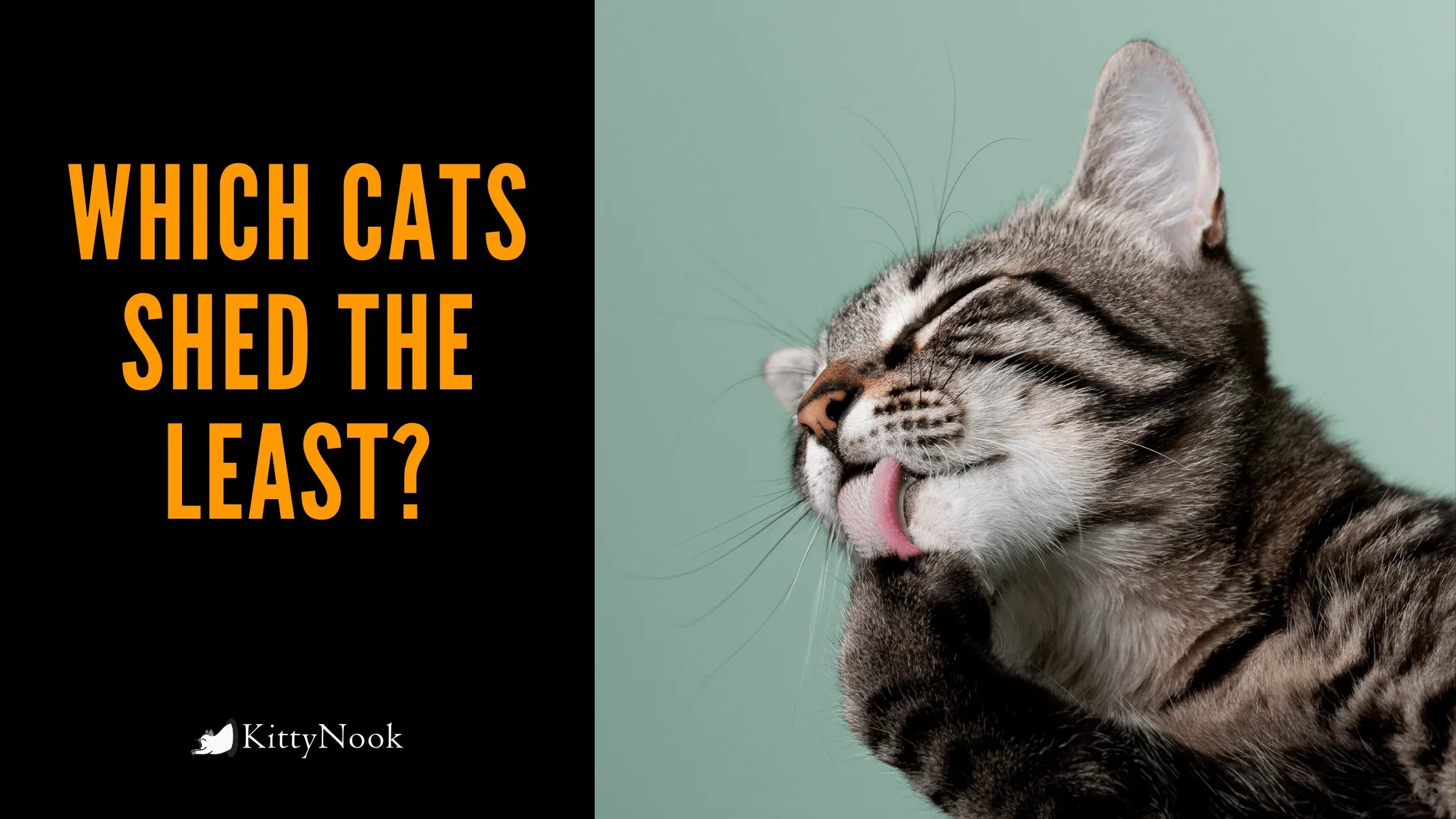If you're tired of cat hair around the house or suffer from cat allergies, then a non-shedding or light shedding cat may be more suitable for you!
If you're a cat lover with light cat allergies, it still may be possible for you to welcome a cat into your home. Although no cat breed is clinically hypoallergenic, anecdotal records claim some breeds may be less likely to trigger allergies. This is potential because of the amount of shedding or because these cats produce less of the Fel D1 protein, which is a common allergen.
In addition, these cat breeds that are shed less and are supposedly great for allergic reactions differ in look and personality. It is essential to note that individuals cats in these mentioned breeds might still cause allergies, as each cat will undoubtedly have minor irritants.
What Triggers Your Allergies?

It's not the cat's hair that causes your allergies; instead, it's a protein called Fel D1 found in cat saliva that makes you sneeze and itch. As soon as a cat licks their hair, the allergen-laden saliva dries and becomes airborne, heightening the likelihood of a reaction.
Some breeds produce lesser Fel D1 than others, making them excellent cats for people with allergies. Along with the Fel D1 protein, other factors affect a cat's allergen production:
Factors That Affect Allergen Production in Cats:
- Males generate more excellent allergens than females.
- Unneutered males produce more than neutered ones.
- Dark cats also tend to have more allergens than light-colored cats.
- Kitties generate fewer irritants than grown cats.
The best means to determine if you are delicate to a pet cat is to satisfy him or her. We suggest contacting an animal sanctuary or rescue team and also set up to meet the animal before making a decision.
Right here are eleven feline breeds that might help people with allergies.
1. Oriental Shorthair
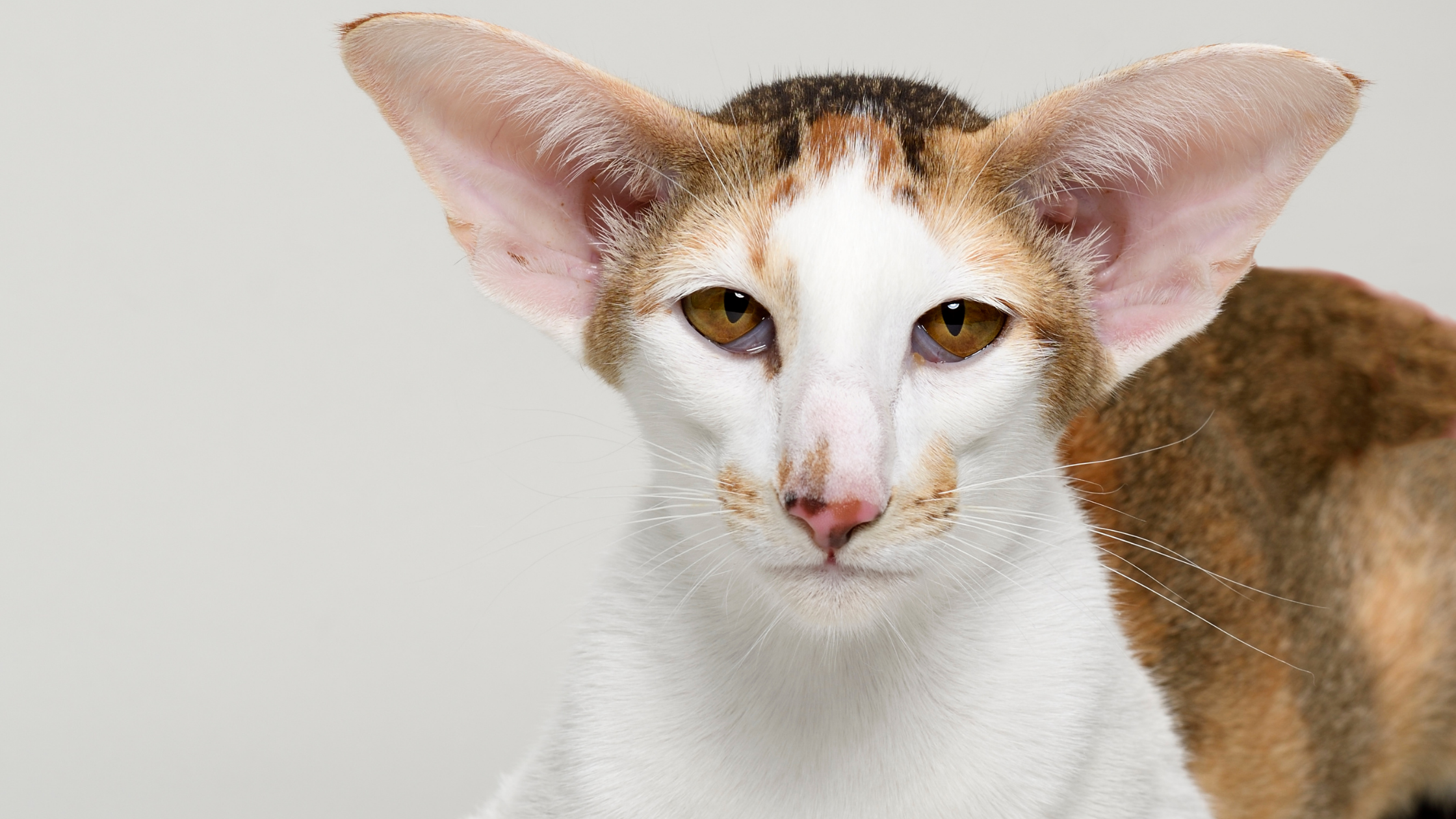
Though considered non-allergenic cats, it's best to groom your Oriental regularly to keep dander to a minimum.
The character of the Oriental is as unique as their coat. They are natural entertainers, full of interest, as well as love being the center of attention. They can be conceited one minuted then become animated and analytical the next. They are very curious breeds and will likely go to incredible lengths to be involved in your tasks.
2. Balinese

Typically referred to as the "longhaired Siamese," the Balinese does appear to be an unlikely candidate for a non-shedder cat. However, it is one of the few cat breeds that generate less of the Fel D1 protein than other feline breeds, thus triggering fewer allergic reactions.
Balinese cats are intelligent, intuitive, as well as playful to be around. Similar to the Siamese, they are known for their ability to communicate vocally. In addition, Balinese are highly social, sensitive, and more than ready to cheer you up with some satisfying babble if you're feeling gloomy.
3. Javanese

The Javanese breeds sport a medium-long solitary coat that does not mat, just like the Balinese. Due to the absence of an undercoat, the Javanese have less fur, which translates into lesser allergens.
Javanese cats are intelligent and are known for their communicative abilities. They love food and tend to burn calories with their spirited antics. This breed is ideal for individuals who want a responsive cat that's simple to train and shows affection by purring in the ear and following its owner about.
4. Devon Rex

Of the two Rexes, the Devon Rex has both lesser and shorter fur. Therefore, your Devon Rex will need to have their paw pads and ears rid of oil accumulation regularly. However, the Devon Rex does not require frequent, thorough baths like the Sphynx or Cornish Rex.
Devons have been compared to aliens for their big satellite-dish ears, oversized, mischievous 'window-to-the-soul' eyes, and heavenly appearance. They've been known to cuddle up with their owners in the evening as well as wake them in the morning with kisses and purrs of affection. And considering that the Devon sheds less than other breeds, allergic owners can snuggle back without the anxiety of being covered in cat hair.
5. Cornish Rex

The Cornish Rex requires more maintenance than the Devon because they need regular baths to alleviate the oil accumulation on their skin.
Cornish Rexes are energetic, investigative, gazelle-like felines that have a playful character. They can be tough to resist, especially when they are in a pleasant mood, which is most of the time. Rexes are determinedly outbound and loving of their favorite human beings. With their warm suedey feeling, they make the excellent winter lap warmer, too!
Both the Devon and Cornish Rex are ideal cats for allergies; choose one that matches your personality and lifestyle.
6. Sphynx

The hairless Sphynx is the feline most notable for being a hypoallergenic cat breed. Being bald does not suggest they're low maintenance, nevertheless. Sphynxes will require regular baths to eliminate the gummy buildup of oils on their skin, and also, their big ears will require frequent cleanings.
The Sphynxes' personality type is typically compared to puppies because of their animated nature. However, to say Sphynxes are vibrant is an exaggeration; they'll keep you delighted by performing aerialist accomplishments from the top of doorways and bookshelves.
Very committed and faithful, they follow their people about, wagging their tails in a doggy fashion and purring with affection.
7. Siberian
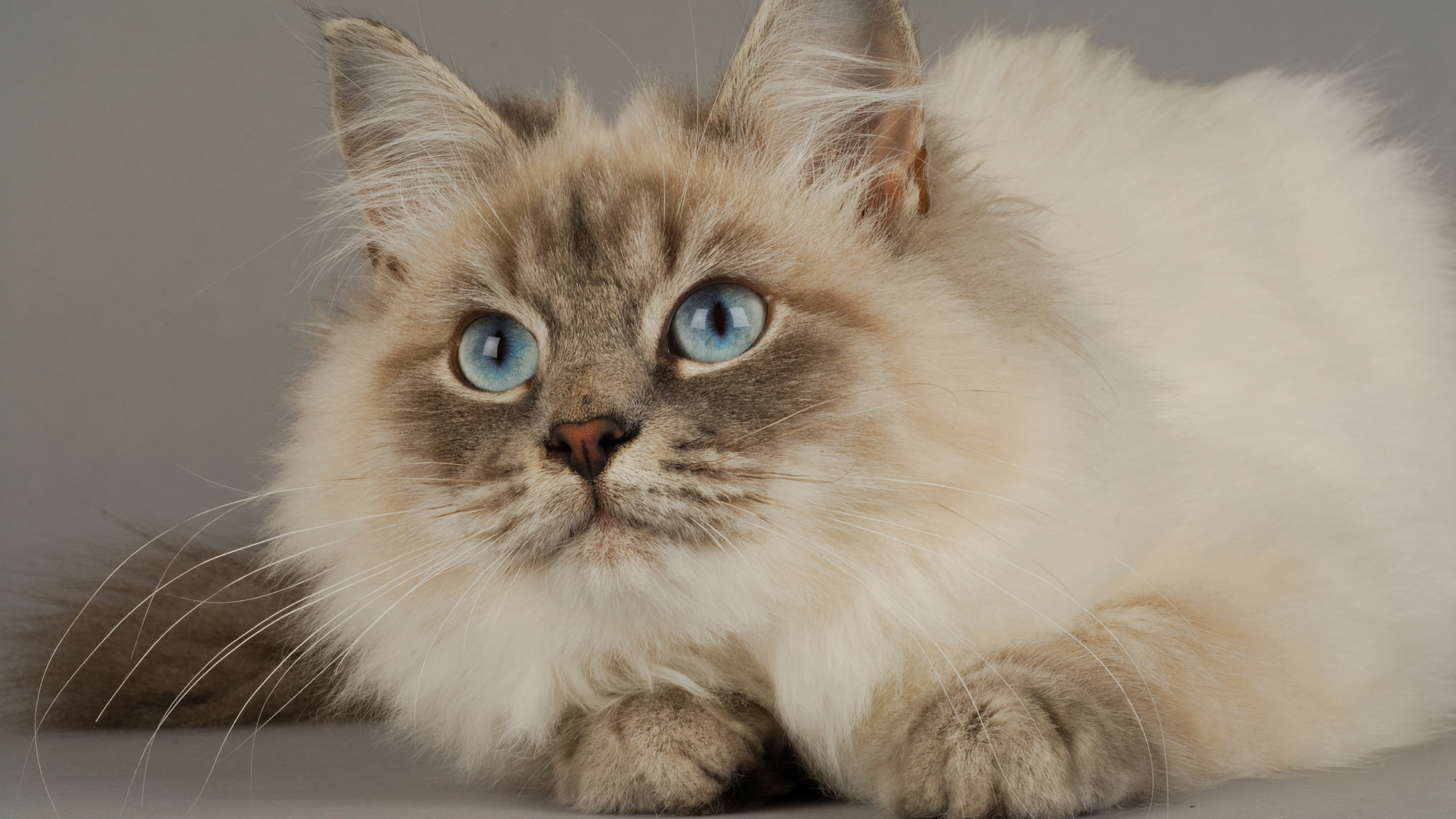
Like the Balinese, the Siberian sports a moderately long coat; however, they are considered "hypoallergenic" because of lower enzyme levels present in their saliva. Some assert that 75% of cat allergy sufferers have no response to the Siberian.
Siberians are caring cats with a great dose of character and playfulness. They have a fascination with water, usually dropping toys into their water dishes or sprinkling in tubs before they're dry.
Siberians are intelligent, with the capacity to problem-solve their way to get what they want. Regardless of their size, they are highly active and are fantastic jumpers, able to jump tall bookcases in a solitary leap.
8. Russian Blue
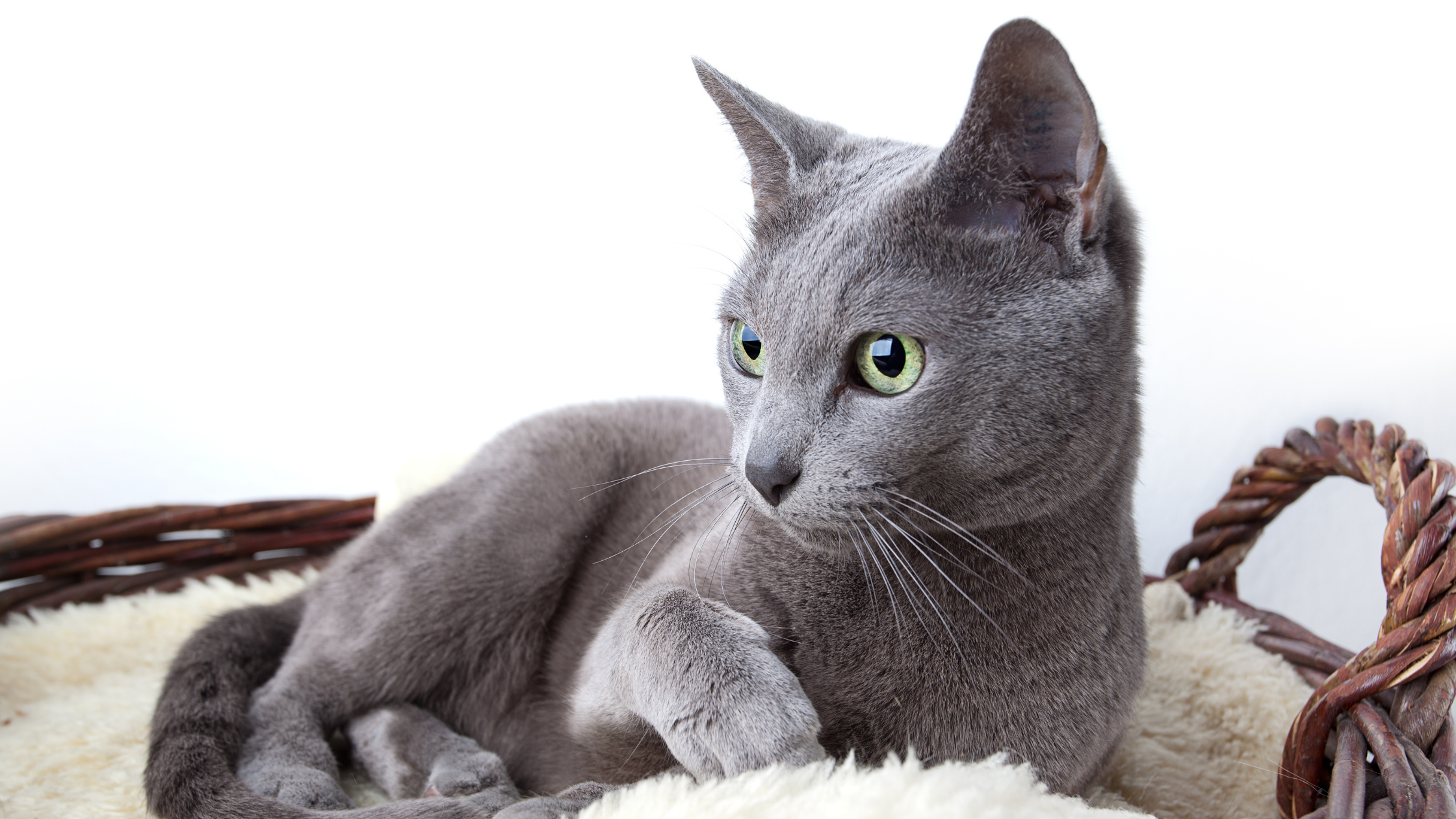
With their thick, silky, double coats, the Russian Blue is simple to groom. In addition, they are recognized to produce less Fel D1, which is one of the primary reasons for feline allergy sufferers.
9. British Shorthair
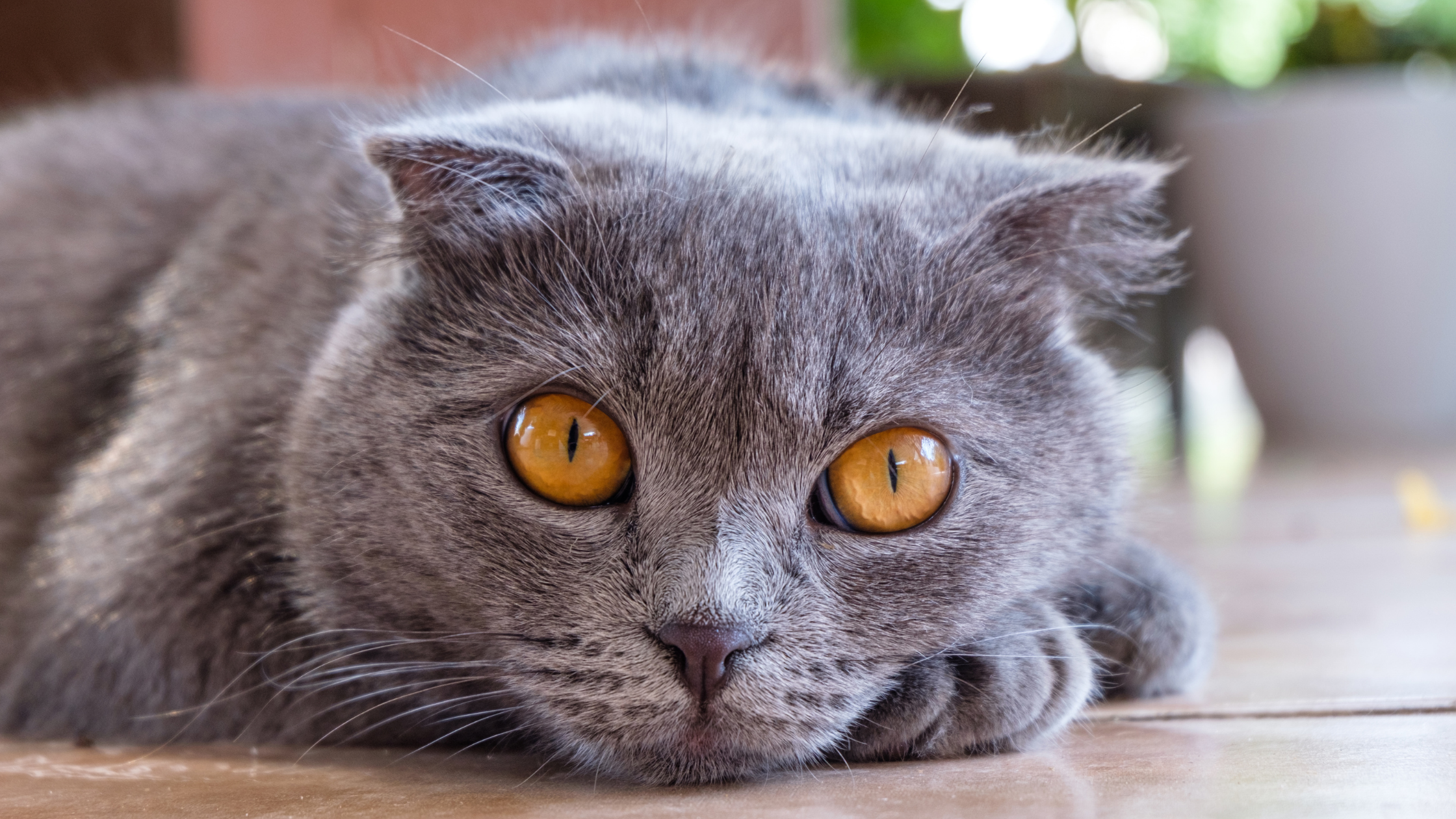
A simple pet grooming routine of simple regular brushing removes dead hair and distributes any skin oils the British Shorthair might have. Their coat is thick, and they have no undercoat, which offers the fur a luxurious appearance with very minimal shedding.
10. Bengal
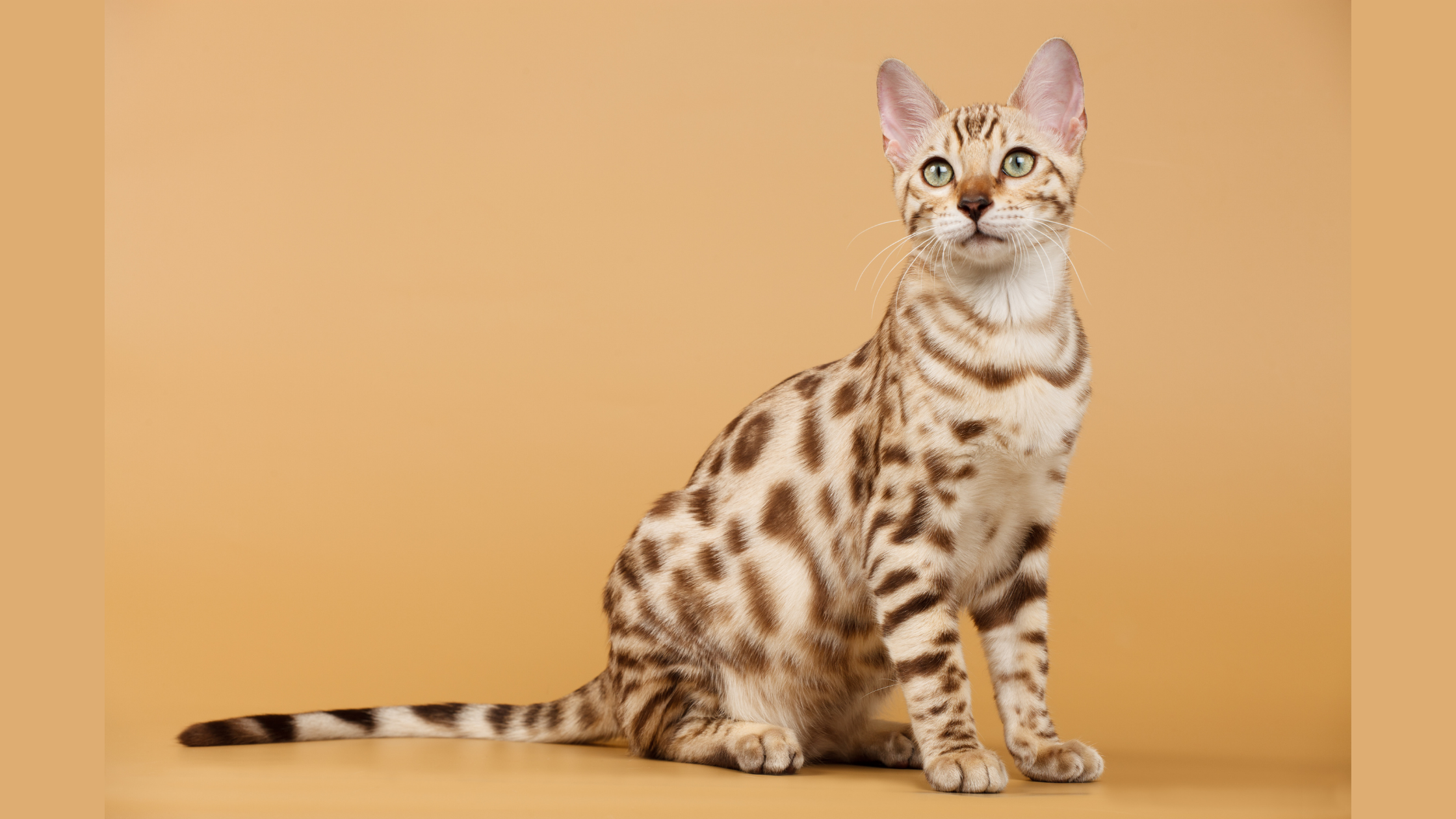
Bengal felines have a distinctive coat comparable to their non-domesticated, more prominent family members like the leopard. Thankfully, their attractive fur sheds less often than other breeds and calls for less upkeep. Regardless of their rugged appearance, Bengals are usually extraordinarily caring and social. They are also incredibly energetic and are good "singers," implying that you should provide plenty of space for them to explore and speak up.
11. Bombay

If you've ever wanted a pet panther, a Bombay cat may be the right pet for you. Generations of reproduction have provided this feline a streamlined, deep black coat that flaunts minimal shedding. Bombay cats are virtually dog-like; they can be leash-trained, incredibly loyal, and trained to play fetch.
When selecting the right feline breed, it is essential to keep in mind that shedding and brushing are only a few aspects. Constantly do plenty of research study of the mind to check that their individuality and personality are ideal for your family members.
Quick Suggestions For New Fur Parents

Embracing a "non-shedder" cat may not be an overall magic bullet, but you can ideally loosen up as well as breathe more comfortably. Try spending time with a cat of a similar breed and see if your allergies stay in check.
When you have a pet cat, there are steps you can take to lessen allergens, whether you have a hypoallergenic breed or otherwise:
- Regular Baths and Brushing: If you dislike cats, the process is best entrusted to a groomer or relative. Research has shown that regularly showering your cat can help get rid of up to 84% of existing irritants and minimize the future production of allergens. In addition, some assert that using distilled water in the bath may likewise lower irritant levels.
- Wash Toys and Feline Bedding: Cleaning toys and beds likewise lower the variety of irritants floating around your home. Do this once a week at the very least.
Managing Your Cat Allergic Reactions
Feline allergic reaction treatment is readily available in the type of antihistamines, such as Claritin and Zyrtec; intranasal steroid sprays, such as Flonase and Nasonex, or any over-the-counter oral and spray decongestant. Get in touch with a specialist to determine which would be best for you. To minimize the results of allergic reactions in themselves and others, pet moms and dads ought to also:
- Wash hands after petting or playing with their cat.
- Make use of a lint roller to remove excess hair from garments.
- Vacuum and dust the home often to help remove excess hair. You can also use a HEPA (high-efficiency particle air) grade filter in their emptiness, which is made to catch and filter better than regular ones.
- Keep their feline groomed and bathed regularly to minimize shedding as well as dander.
While no cat is hypoallergenic, individuals who love cats could still have one in their house by choosing a low-shedding type. Naturally, think about your allergic reactions' seriousness and consult your physician before getting a cat.
Keep in mind: While the breeds in this list often tend to be more allergy-friendly, private pets will vary. Please speak with the adoption organization for information on a particular pet.
Here's hoping you'll be able to cuddle up quickly among these minimally shedding cats!



